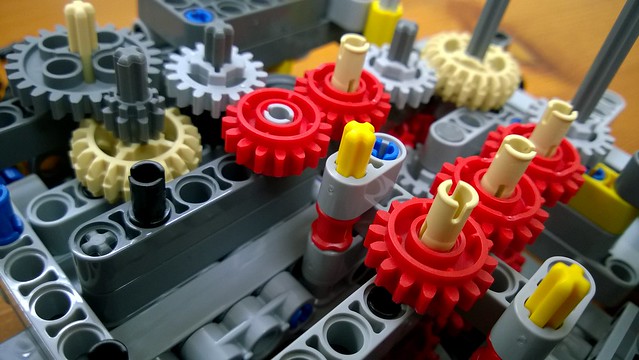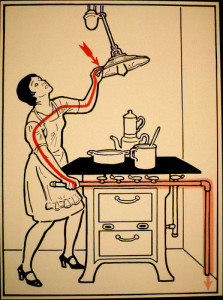This evening I went to a YOW Night where Ken Scambler (@KenScambler) spoke about the introduction and evolution of using Scala at REA Group. Here’s my notes…
Functional Scala Benefits
 The benefits of going functional are to get to code that is: Modular, Abstract, Composable.
The benefits of going functional are to get to code that is: Modular, Abstract, Composable.
Modularity is about being able to fit entire sections of code in your head without having to consider things going on outside that code, and also about being able to replace small parts without affecting the whole.
To write a total function (a function that returns a result for all possible input values), you need to elevate all possibilities into the type system. For example, you can’t throw an exception, you have to encode that possibility of an error into the return value somehow.
Abstraction should reduce changes to code, because unnecessary detail is not all across the code.
Whole systems can be composed from functional components.
Functional programming is not about picking up a hipster language. It’s about producing better software.
Continue reading →


 Why are distributed transactions icebergs? It’s not because they’re cool and beautiful and you have to look under the surface to comprehend them.
Why are distributed transactions icebergs? It’s not because they’re cool and beautiful and you have to look under the surface to comprehend them. The benefits of going functional are to get to code that is: Modular, Abstract, Composable.
The benefits of going functional are to get to code that is: Modular, Abstract, Composable. The funny thing is that lambdas don’t, by themselves, do anything new. They’re just a succinct form for turning a block of code into an object that can be passed around – syntactic sugar. Some of us have been doing this for a while without the succinctness and we call it… object-oriented programming! Yes, passing blocks of code (aka functions) around as objects (aka values) is also core to functional programming, but certainly not unique to it.
The funny thing is that lambdas don’t, by themselves, do anything new. They’re just a succinct form for turning a block of code into an object that can be passed around – syntactic sugar. Some of us have been doing this for a while without the succinctness and we call it… object-oriented programming! Yes, passing blocks of code (aka functions) around as objects (aka values) is also core to functional programming, but certainly not unique to it. Hadi Hariri is a Developer and Technical Evangelist at
Hadi Hariri is a Developer and Technical Evangelist at  You know
You know